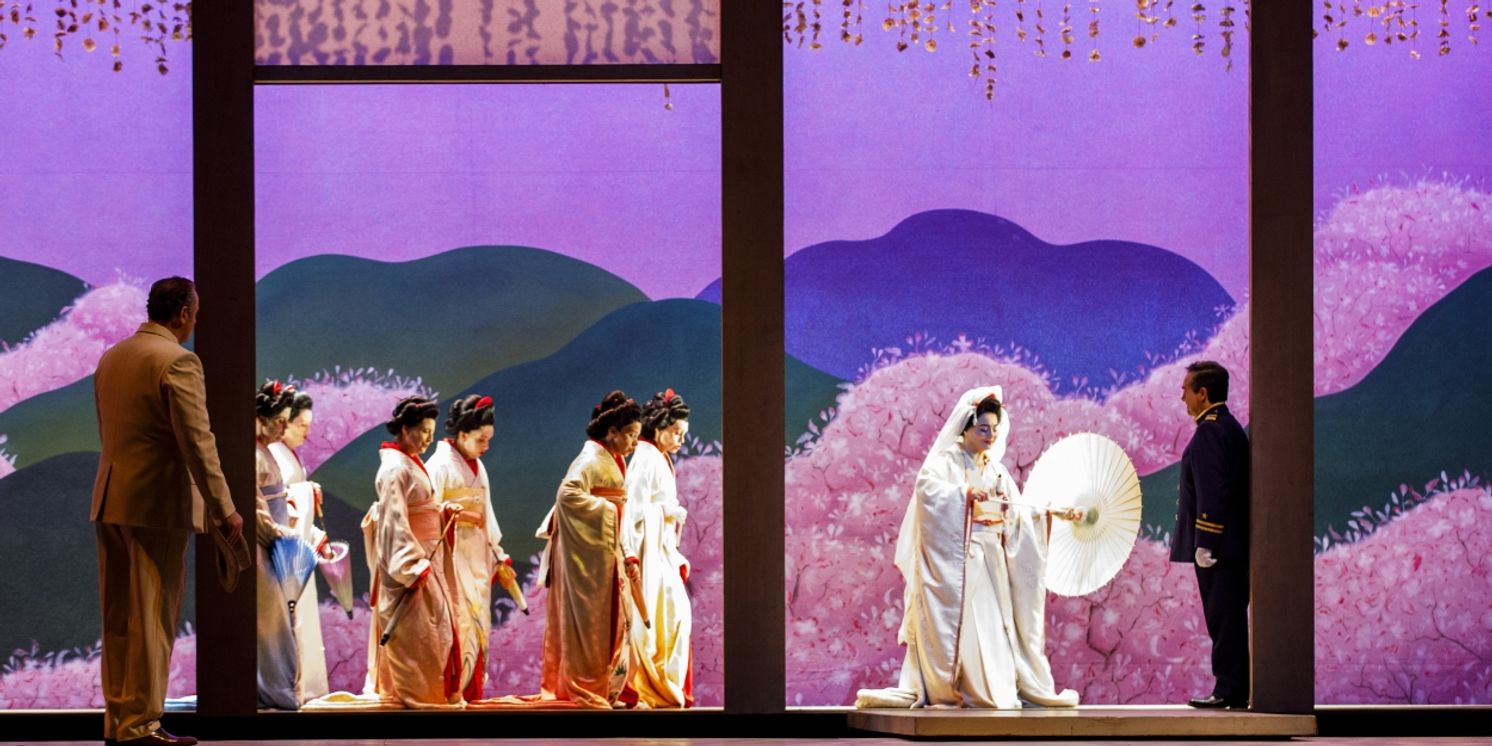Review: MADAMA BUTTERFLY, Royal Opera House
Puccini's classic gets a revival and an updating but loses little of its power

 Great art is problematic. It takes our world and presents it in ways that delight us, surprise us and occasionally shock us. It is not bland, nor blasé, nor comfortable. That deliberately invoked unease is (literally) what makes it great.
Great art is problematic. It takes our world and presents it in ways that delight us, surprise us and occasionally shock us. It is not bland, nor blasé, nor comfortable. That deliberately invoked unease is (literally) what makes it great.
Few would say that Puccini's operas do not deserve the label great art and few would say that they do not demand a stance to be taken towards the themes his work uses to generate the rawest of emotions that have stirred audiences for over a century. For some houses, his work (and the work of others in opera's canon - yes, there's a problem with that concept too) might be too risky, too distant from 21st century sensibilities for a bridge to be built. Sure it's playing with fire, but if you stay too far away from the flames, you're in the cold, in the dark and miserable - the danger of being fingers being burnt is no reason not to venture forth.
The Royal Opera House has taken its oft-revived 2003 production (directed by Moshe Leiser and Patrice Caurier) and applied to it a veneer of wokeness / sensitive acknowledgement of its setting (delete to taste) and, under revival director, Daniel Dooner, addressed the elephant in the room. Out goes geisha girl make-up and "three little maids from school" style caricatures and in comes historically accurate characterisations, informed by Japanese creatives, not least movement consultant, Sonoko Kamimura, and costume, wigs and make-up consultant, Etsuko Handa. Whether such actions are sufficient to discharge obligations piled up during decades of colonial attitudes (consciously and subconsciously) informing productions, will require someone other than your 59 year-old, white, uber-privileged reviewer to judge.
The opera, lest we forget, is sung in Italian and concerns itself with the relationship between an American naval officer and his 15 year-old Japanese bride - so we're not really in a quasi-documentary discourse here. That said, Lieutenant B.F. Pinkerton is somehow even more loathsome in 2022, the breathtakingly transactional quality of his conversation with the marriage broker (ie pimp), Goro, bearing echoes of other American men (one in particular) finding themselves in positions of power and happy to exploit it.
Freddie De Tommaso catches Pinkerton's amorality early on but gives us too much remorse and self-knowledge in his later confession of cowardice in his refusal to meet his bride on his return to Japan. The scene can be played more cynically, more of a show to seek forgiveness from the ever-disapproving consul, Sharpless, beautifully played and sung by Lucas Meachem - but perhaps Pinkerton is so abhorrent that ascribing any amelioration of his narcissism is hard to credit.
Lianna Haroutounian's Cio-Cio-San never quite touches the depths of the child bride's tragedy. She seems too smart not to see the consequences of her giving up her religion for Christianity, to persist with the relentless self-deception in waiting for Pinkerton's return, in her unwillingness to broker her son as a means of influencing the obviously sympathetic Sharpless. She also appears very close to her maid, Suzuki (a wonderful Patricia Bardon, channeling some of the pathos missing from the lead) and one wonders why she leaves her alone at the end. Not for the first time, one reaches for the cliché (and hence truth) that love is blind.
In supporting roles, Alexander Kravets is excellent as Goro, lurking in the background, an eager facilitator of Pinkerton's depravity, and Jeremy White gives it full gas as the Bonze, pitilessly isolating Cio-Cio-San from her religion, her family and her culture.
Dan Ettinger has one of the greatest scores in opera to conduct and, though he and Haroutounian get the signature aria, "Un bel dì vedremo" exactly right, too often the music is too insistent, sometimes overpowering the voices and drowning the character arcs' descent into tragedy. It's a fine line as to whether the music or the singing should lead the story but, aside from a beautifully judged and staged sequence in which Cio-Cio-San stares out to the harbour waiting for her husband, the conductor seemed to be rushing the singers.
That said, it's Puccini and his opera has lost none of its power to churn you up inside, invoking anger with such beautiful music, hitting you hard in the heart. Knowing that the poor girl's fate can induce even greater emotion is hardly a reason to deny the power of this production, nor to fail to applaud it for addressing what it means to stage Madama Butterfly in 2022.
Madama Butterfly is at the Royal Opera House until 1 October
Photo: Yasuko Kageyama
Reader Reviews
Videos

